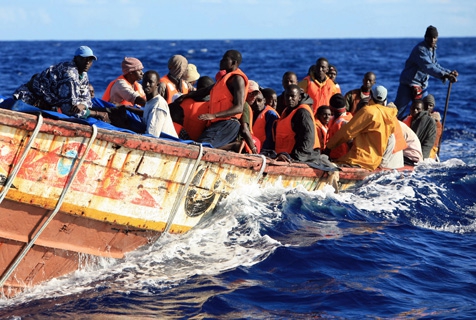In light of the media coverage and news around Latin American immigration to the United States, and the treatment these immigrants have and continue to receive upon arrival in the United States, I decided to flip the table, and examine immigration into Latin America and the form it has taken over the years.
The article I found on Wikipedia was titled:
It examines the origins of the black populations in Latin America and traces them back to the immigrations of refugees from Angola and Mozambique particularly, during the Angolan and Mozambican Civil Wars. This article mentions too, the origins of white African immigrants from these same countries during the Portuguese Colonial War. The article makes a distinction between these refugees and Africans who were forcibly removed from their native countries and communities on the continent during the Atlantic Slave Trade. This is an important distinction which begs the ethical question: were the slaves immigrants? The simple answer is No. In reality, the issue may be more complicated.
The article also makes note of the fact that integration of these immigrant populations was easier because of an already pre-existing diaspora black population that had been formed through the slave trade. The wikipedia article further states that it was this, and Latin America’s general open attitude towards immigrants that lent it as a prime destination, in the face of Europe and the rest of the world closing its borders.
The article cites a Reuters article that describes increasing African immigration to Latin America. Content gaps I immediately identify in parsing this article are that it does not offer reputable citations for its statistics of African immigrants to Argentina, Brazil, and Puerto Rico numbering in the 2000s.
Additionally, it does not make a distinct transition from the historical view, to the modern trends of the last century. In one breath, the author transitions from discussing post- slave trade immigration to discussing immigration in the 21st century. For both of these periods, statistics and citations are absent. A more detailed breakdown for immigration for the region and countries in it would benefit this article as well.
There has been only one modification made to the article and the Talkpage has had no discussions on it in the last year. This is indicative of the sparse contributions and revisions made to the article.



 (it’s not related to the blog)
(it’s not related to the blog)
